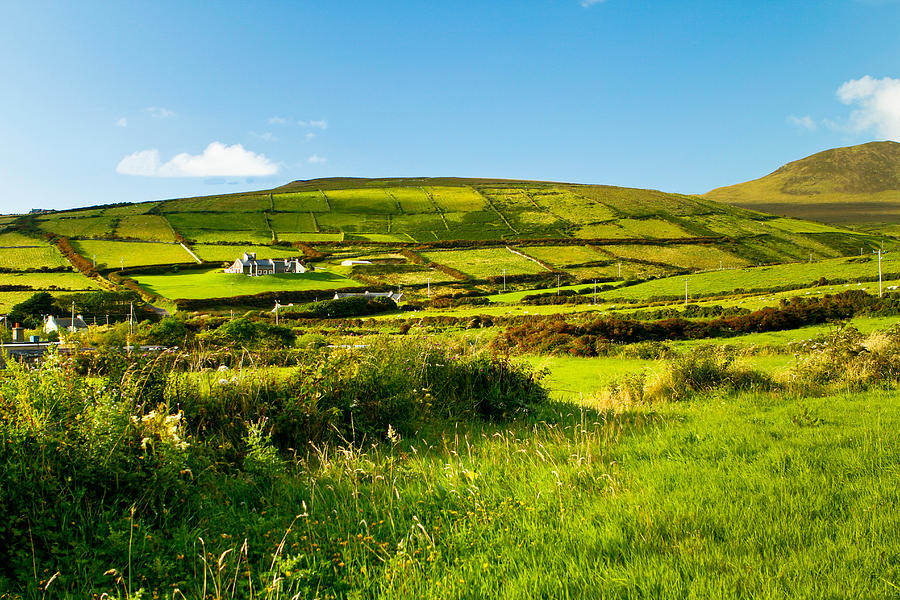Government departments and agencies have implemented 77% of all measures in the 2021 Climate Action Plan to date, according to the latest progress report published this week.
The third quarter (Q3) report details progress on the implementation of measures under the Climate Action Plan 2021, including key emissions trends in each sector and high impact measures completed and delayed this quarter.
A delivery rate of 60% is reported for Q3 2022, with 74 of 124 measures due in this period completed on time according to the report.
The overall implementation rate of the plan to date (combining delivery from Q4 2021 to Q3 2022) stands at 77%, with 542 of 708 measures completed.
Agriculture
One of the measures outlined for the agricultural sector is to increase the use of clover in reseeded swards (sown at rate of 2kg/ac). This is considered a high-impact measure.
According to the progress report, this measure has been completed as Teagasc developed methods and recommendations for the incorporation of clover on-farm in Q3, and additionally runs 40 clover pilot farms and 12 clover farm walks to raise awareness and demonstrate success.
A second ‘high-impact’ measure completed in the third quarter of 2022 was the development and rollout of a training of farm advisors programme to 400 public and private advisors, to upskill in key areas such as climate change, health and safety, biodiversity, and soil and water challenges.
A Continuing Professional Development (CPD) programme was launched in September 2022 for advisors, including training modules on climate change mitigation and adaptation.
However, some measures which were due to be implement by Q3, 2022 have been delayed, according to the report. One such measure was to examine the effects of feed ingredients/additives (seaweeds, seaweed extracts, oils and halides) in sheep and cattle.
The progress report states: “New feed additives hold the potential to reduce methane emissions from animals, particularly during animal housing periods. Important research concluded on the use of seaweed, oil, and halide additives for sheep in Q2.
“However, some delays continued in concluding the parallel beef cattle trials due to initial equipment supply delays during Covid-19.
“Two out of three cattle trials nevertheless [were] completed in Q3, with early data showing potential methane reductions between 4.5% and 20.5% depending on the type and quantity of feed additive used.”
Another delayed measure is to explore pathways to encourage earlier finishing of beef animals. The report indicates that delays were encountered in progressing this measure in Q3, with a multi-agency approach required to examine options and facilitate implementation.
Climate Action Plan
Ireland’s Climate Action Plans provide a roadmap to reduce greenhouse gas (GHG) emissions and tackle the climate crisis.
They provide specific actions that government departments, agencies and public bodies will take across sectors, together with a timeline for the completion of each action.
The latest progress report indicates that the need to overcome delays in climate action implementation is clear, not least against the backdrop of severe climate change impacts witnessed in Q3 2022.
The summer of 2022 witnessed a number of extreme weather events including record-breaking heatwaves and droughts, flooding, dangerous storms, and damaging wildfires.
The government has said that these disruptive climate events have wreaked havoc on communities locally and internationally, killing and displacing people globally, and taking their toll on broad sectors of the economy.
In his national statement at COP27 in Egypt, Taoiseach Micheál Martin highlighted the urgent need for timely implementation on climate measures.
Commenting on the latest Climate Action Plan progress report, the Taoiseach said:
“In delivering our national statement at COP27 in Egypt, I highlighted the need for urgency. Every delay makes our task that bit bigger, and we need to translate our ambition into rapid action.
“We can already see and feel the world around us changing. Let us not waste a second more.”
Tánaiste and Minister for Enterprise, Trade and Employment Leo Varadkar welcomed publication of the Q3 progress report, saying: “It’s clear that climate change is having a devastating social, environmental and economic impact. It is the most pressing long-term global challenge of our time.
“We need to take better care of our planet. All sectors have a part to play in ensuring we leave it in better condition for future generations.
“We have made some significant progress in this quarter, but it’s clear we need to accelerate action in order to achieve our ambitious climate goals. We have moved from laggard to mid-table. We should now aim to be a leader.”
Minister for the Environment, Climate and Communications Eamon Ryan added: “Ireland played a huge role in addressing climate justice at the recent COP27 conference. Here at home we need to focus on high impact climate solutions that urgently address mitigation.
“This progress report demonstrates clearly that we still have a lot of work to do.
“The recently approved carbon budget programme and sectoral emission ceilings provide a strong framework and pathway to guide and inform our policies and measures towards our 2030 and 2050 goals.”
Preparation of an updated Climate Action Plan is currently underway and it is expected to be published before the end of the year following approval by the government.
